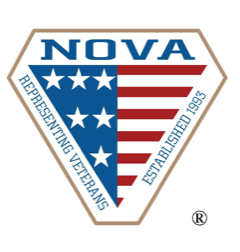Agent Orange
Agent Orange and Herbicide in VA Compensation Claims
Agent Orange:
Agent Orange is a blend of "tactical herbicides" the U.S. military used during the Vietnam War to remove trees and dense tropical foliage that provided enemy cover. Named for the orange stripe on the barrels in which it was stored, Agent Orange was one of several rainbow herbicides used, including Agent Blue, Agent White, and others. The primary concern with Agent Orange was that it contained a harmful chemical called dioxin (specifically 2,3,7,8-tetrachlorodibenzo-p-dioxin, or TCDD), which causes serious health issues in those exposed.
VA Compensation:
U.S. veterans who were exposed to Agent Orange or other herbicides during military service may be eligible for various types of VA health care benefits, including disability compensation for diseases associated with exposure. These diseases can range from multiple cancers to type 2 diabetes to Parkinson's disease and more.
Presumptive Diseases:
To simplify the process for veterans seeking disability compensation for diseases related to Agent Orange exposure, the VA has listed certain "presumptive diseases." This means that if a veteran has one of these diseases, they don't need to prove an association between their disease and service. However, they still need to prove that they were exposed to Agent Orange or other herbicides during their military service.
The PACT Act Provisions on Herbicide Exposure Compensation:
According to the stipulations in the PACT Act, veterans qualify for both VA health care and compensation benefits if two primary conditions are met:
They have recognized service, which allows the VA to concede exposure to herbicides, including but not limited to Agent Orange.
They have exhibited any of the designated diseases after their eligible service.
The PACT Act identifies "recognized service" for Vietnam-era veterans as active duty in the following locations during the specified timelines:
• Within the borders of the Republic of Vietnam between January 9, 1962, and May 7, 1975.
• In Thailand on any U.S. or Royal Thai Base from January 9, 1962, to June 30, 1976.
• In Laos between December 14, 1965, and September 30, 1969.
• In Cambodia, specifically at locations like Mimot, Krek, or within the Kampong Cham Province from April 16, 1962, to April 30, 1969.
• Within the Korean Demilitarized Zone (DMZ) from April 1, 1968, to August 31, 1971.
• On the islands of Guam and American Samoa, or their surrounding territorial waters, between January 9, 1962, and July 31, 1980.
• On Johnston Atoll or aboard a ship that docked at the atoll from January 1, 1972, to September 30, 1977.
• For veterans of the Air Force or Air Force Reserve, the Act covers those who had regular and repeated duties operating, maintaining, or serving aboard C-123 aircraft used for herbicide spray operations.
Furthermore, the PACT Act introduced additional specified diseases for Vietnam-era veterans, which include:
• Hypertension
• Monoclonal Gammopathy of Undetermined Significance.
Service Connection Beyond Presumptive Conditions:
Veterans need to understand that even if a particular condition isn't listed under the VA's presumptive diseases associated with herbicide exposure, this doesn't mean you are not entitled to compensation. Veterans can still pursue and receive service connection for their health issues if they effectively demonstrate the three crucial elements of service connection:
· Current Medical Condition: A diagnosis or confirmation of the present illness or disability.
· In-Service Event or Exposure: Evidence that the injury, illness, or event that led to the medical condition happened during active military service.
· Medical Nexus: A medical opinion or evidence linking the current medical condition to the in-service event or exposure.
For over a decade and a half, Timothy R. Franklin has been at the forefront of championing non-presumptive herbicide claims, giving a voice to countless veterans whose conditions fall outside the conventional presumptive list. Building on this legacy, Lowry Veterans Law Ltd. specializes in this complex area, housing a team of experts adept at securing the necessary medical nexus for veterans. Their extensive experience and expertise ensure veterans receive the recognition and compensation they deserve, even when their conditions aren't on the standard presumptive list. If you or a loved one is seeking assistance with a non-presumptive herbicide claim, Lowry Veterans Law Ltd. is poised to provide the guidance and representation needed.




Disclaimer: This information, while not legal advice, is a powerful educational resource. It's designed to provide a general understanding of the law and to equip you with general information. It's important to note that this information is not a substitute for legal advice. By using this information, you acknowledge that there is no attorney-client relationship created by your reading or use of the information contained on this website or in this newsletter, article, or blog. Additionally, case summaries, reports of past results, individual lawyer biographies, news posts, and other information related to past and present cases are provided to inform the public about the activities and experience of our law firm. They are not intended as a guarantee that we will achieve the same or similar results in every case we handle. We encourage you to reach out to us and we value your calls, letters, and electronic mail. However, it's important to understand that contacting us does not establish an attorney-client relationship.
